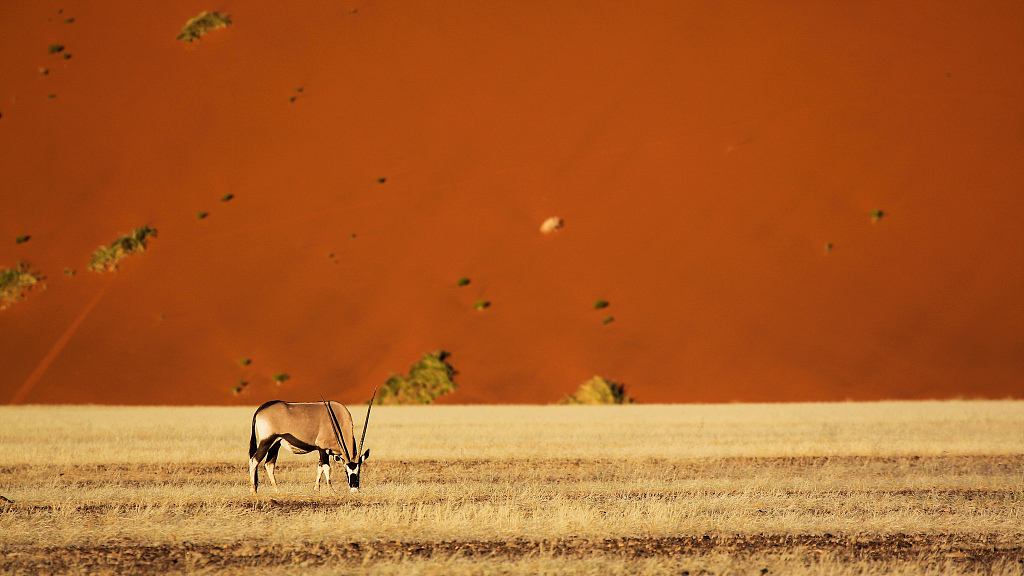
Wildlife in Namibia. /CFP
Wildlife in Namibia. /CFP
Namibia's Minister of Environment, Forestry, and Tourism Pohamba Shifeta on Monday expressed concern over the global trend of restricting hunting, highlighting the need to balance conservation with the welfare of local communities.
Speaking at the 21st African Wildlife Consultative Forum in Windhoek, the capital of Namibia, Shifeta emphasized the importance of addressing this issue and developing mechanisms to counter the ongoing onslaught against hunting.
"Namibia believes that hunting has a place in our conservation and social setup, and will support all efforts aiming at promoting well-regulated and people-centered hunting," he said.
Shifeta said that wildlife conservation is a vital economic activity in many African countries and highlighted how well-developed wildlife industries contribute significantly to job creation, and rural and national economies, directly benefiting local communities.
"We have to find mechanisms to stop the further decline of wildlife by adopting models that work for both wildlife and people on whose land wildlife occurs. I believe that placing some economic value, and finding ways to derive these values, is the model that has worked for Southern Africa," he said.

Sossusvlei is a salt and clay desert in the Namib Desert, located in the Namib Naukluft Park in Namibia. /CFP
Sossusvlei is a salt and clay desert in the Namib Desert, located in the Namib Naukluft Park in Namibia. /CFP
Shifeta placed a strong emphasis on the importance of community-based natural resource management (CBNRM) programs, explaining how these programs have successfully integrated local communities into wildlife conservation initiatives in Southern Africa, benefiting both conservation efforts and the livelihoods of people living near wildlife habitats.
However, he also noted the necessity of innovating CBNRM approaches to address economic challenges faced by households.
He outlined six key aspects for successful wildlife conservation efforts, including establishing enabling policy frameworks, leveraging the economic value of wildlife for conservation, linking conservation with rural development and poverty alleviation, as well as enabling the recovery of wildlife resources.
(If you have specific expertise and want to contribute, or if you have a topic of interest that you'd like to share with us, please email us at nature@cgtn.com.)
Source(s): Xinhua News Agency